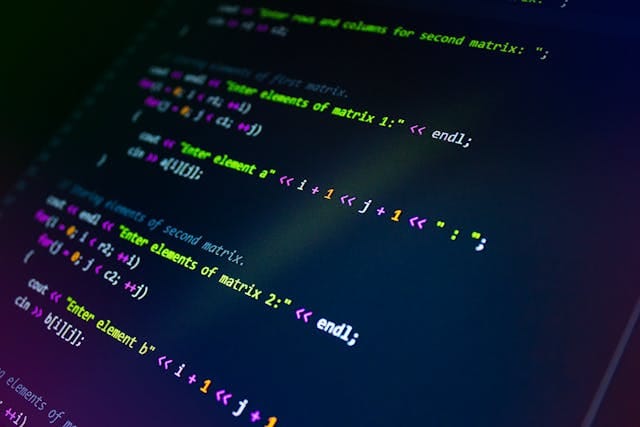Artificial intelligence is rapidly changing the landscape of software development, with industry leaders making bold predictions about its capabilities. Recent statements from tech executives suggest we’re approaching a turning point where AI could handle most coding tasks traditionally performed by humans.
AI’s Accelerating Coding Capabilities
OpenAI’s Chief Product Officer Kevin Weil believes AI will surpass human coders by the end of 2025, significantly earlier than previous predictions. Meanwhile, Anthropic CEO Dario Amodei makes an even more dramatic claim, suggesting that within just 3-6 months, AI could be writing 90% of code, and within a year, “essentially all of the code.”
These predictions are backed by measurable progress. OpenAI’s GPT models show dramatic improvements in competitive coding benchmarks. According to Weil, their GPT-01 preview ranked among the top 2-3% of programmers globally. Their latest model, GPT-03, ranks as the 175th best competitive coder in the world, with successor models already showing further improvements.
“I think this is the year that, at least by competitive coding benchmarks, AI becomes better than humans at competitive coding forever,” Weil stated. “In the same way that computers passed humans at multiplying 70 years ago and AI passed humans at chess 15 years ago.”
Industry Impact and Job Transformation
The rise of AI-powered coding tools is already changing how software is created. Y Combinator CEO Garry Tan revealed that for 25% of startups in their Winter 2025 batch, 95% of code lines are generated by large language models.
Despite these advancements, industry experts believe human expertise will remain valuable but in different ways. While AI may handle the technical writing of code, humans will still need to define problems, set direction, and verify results.
“Understanding what problems to solve, where to focus your work, where the leverage is—those kinds of things are still going to matter,” Weil explained.
Similar Posts
Democratizing Software Development
One potential benefit of AI coding tools is making software development more accessible to non-programmers. Weil highlighted this democratizing effect: “Imagine all the things that you can do if you don’t need to be an engineer to create software… What a democratizing effect this can have on the world if everybody can create software.”
This shift is already happening, with tools like GitHub Copilot and Amazon CodeWhisperer helping people with limited coding experience build applications. Kevin Roose, a New York Times columnist with no formal programming skills, described building applications with AI assistance.
The Future of Programming
The International Monetary Fund estimates AI could impact about 40% of global jobs. For software development specifically, the landscape appears to be transforming rapidly, with AI handling more routine coding tasks.
As Tim O’Reilly, a veteran technology industry observer, puts it: “AI will not replace programmers, but it will transform their jobs.” This transformation may require developers to shift their focus from writing code to designing systems, managing AI tools, and solving higher-level problems.
Some industry leaders emphasize that AI will augment rather than replace programmers. According to the source document, people will still be needed to understand what problems to solve and where to focus work, even as AI handles more of the technical coding.
As companies actively reskill their workforce to adapt to these changes, the next few years will likely determine whether these bold predictions about AI coding capabilities come true, and how deeply they’ll transform the tech industry.







